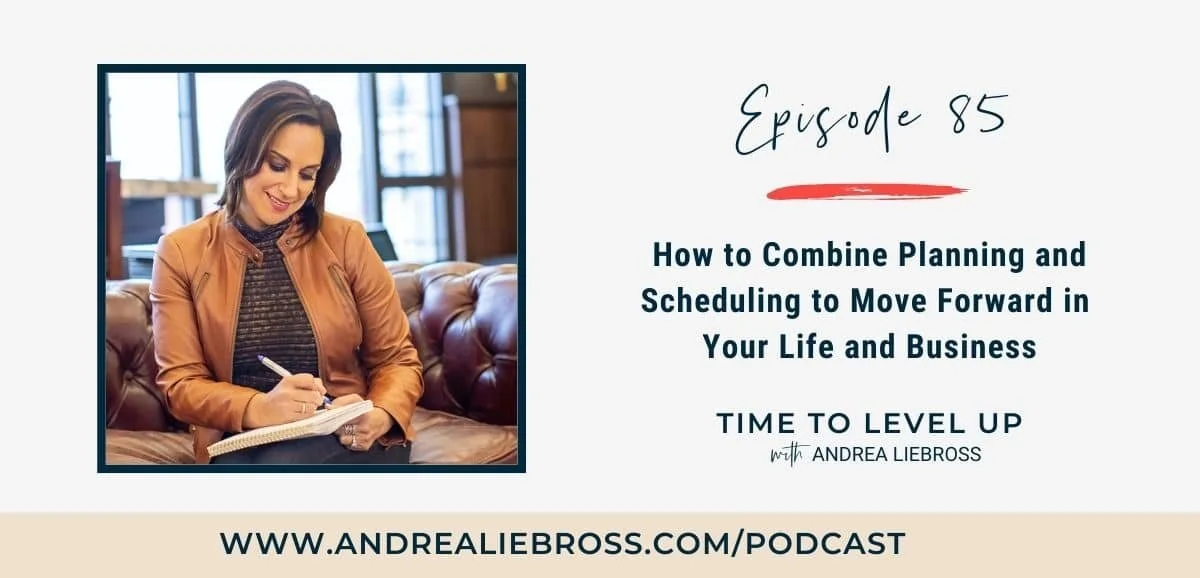85: Planning Vs. Scheduling and How to Move Forward
“I just need to plan more.” Do you really, though?
Regardless of the time of year, I often hear people say this. But I think the real answer lies in figuring out what, when, and where you want to direct your attention. Today, I share the differences between plans and schedules and how they go together in helping you figure out what you want to attend to.
We’re talking about this now, in the middle of summer because as we move into fall, you’ll crave a fresh plan and schedule. You may even believe you’ll be happier, and that everyone in your household would be happier. This is 100% possible.
In Today’s Episode We Discuss:
6:30 - What good ol’ Google has to say about planning and scheduling
8:33 - Why you shouldn’t confuse planning with scheduling (or vice versa)
12:39 - What an attention audit is and how to use one if you have trouble planning
18:20 - How scheduling is different than planning and should come after, plus two rules to keep in mind
21:49 - Recapping why scheduling and planning isn’t just about using the pretty planner
25:00 Get support during the Full Focus Planner Masterclass
How you manage your time is definitely a reflection of how you manage your mind. I hope this discussion around planning and scheduling, figuring out what you want to attend to, how to use tools to help you, but most importantly, how to use your mind to help you, I hope this was all helpful because this stuff helps me.
Join Andrea for Full Focus for Fall Masterclass.
Resources Mentioned:
- The Full Focus Planner
- Full Focus for Fall Masterclass (Limited Spots) - Starts August 11th
- Schedule a Call with Andrea Liebross
- Uncommonly More
Other Episodes You'll Enjoy:
84: Creating a Breakthrough: How to Decide, Implement and Evaluate
83: Getting Clear on Where You're At: Finding Your Current Location
82: The Key to Making Better Choices: Knowing How to Figure Out All the Options
[fusebox_transcript]

